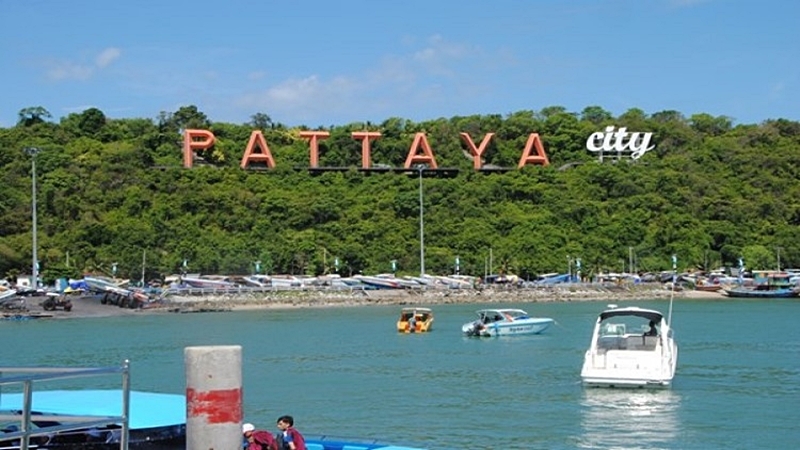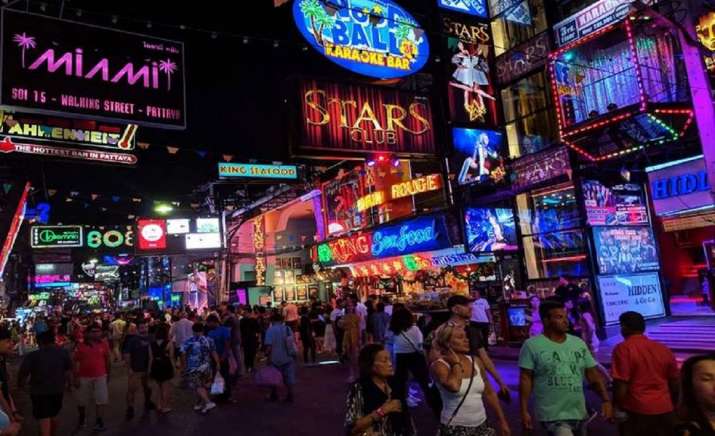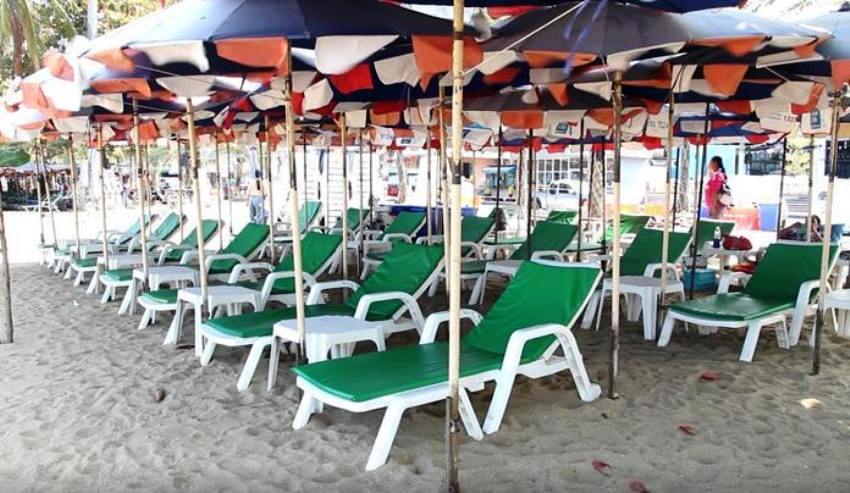
After a startling rise in infections in Banglamung and Rayong, it was inevitable that the “city of fun” would come under near-total lockdown. Nonetheless, it’s important to note that this screwing-down of the lid is not quite so severe as the previous one beginning April 9, 2020. This time around, there is no ban on the retail sale of alcohol which resulted in panicky supermarket pandemonium last time.
So far at least, there is no ban on going to the beach but you mustn’t appear in a group, open a beer, or organize a full moon party. Or even a half moon one. Importantly, there is no curfew in Pattaya and no road checks requiring you to prove with documentation why you aren’t at home in splendid isolation.
That said, confusion is bound to reign supreme in the first day or two of the current lockdown. One farang misunderstood that the closure of entertainment places also included the immigration bureau, so he need not do his 90 days nor renew his visa. Sorry sir. Another was turned away by the cashier when he tried to buy new underpants in a superstore because clothing is not now considered “an essential item of purchase.”
He protested that the purchase was indeed essential as he had soiled the pair he was wearing. The tourist police were called. No sympathy, but they did run him home. At the time of writing, there is still official ambiguity about whether hairdressers can operate normally and what is the difference between a DIY retail unit and a construction store. This is apparently relevant if you are trying to purchase a chain-saw.

One of the first consequences of the December 2020 lockdown is that some people will risk breaking the rules by consuming alcohol in groups. Last time just over 150 Thais and foreign visitors were arrested in Pattaya alone for attending pool parties or patronizing illicit drinking dens.
In spite of the possible draconian penalties, including deportation for aliens, most were let go after a sojourn in the police station and a fine of 50,000 baht or so. Few wanted to repeat the experience.
It’s important to remember that Thailand has a huge network of officials and Thai volunteers who are well used to maintaining social order during crises and even military coups. Best not to be tempted to socialize with alcohol as the stimulant.
The saddest part of this second 2020 lockdown is the misery to be inflicted on parts of the local Thai population. Many hotels, restaurants, bars, clubs and massage parlours never reopened in July, when allowed to resume business, and the current crisis is likely to sound the permanent death knell of even more. The last crackdown lasted roughly three months, although there was some relaxation of the rules towards the end.
The lifespan of the current lockdown is speculative but is unlikely to be lifted any sooner: there are currently far more infections in the region than there were last April, whilst approved vaccines and mass testing still lie in the medium-term future. Although many Thais will leave Pattaya for their home province, there will be many here dependent on public goodwill such as food banks and distribution networks.
A serious problem is that foreign businesses which proved bountiful last time around in this context no longer have funds or have already closed. The extent to which the Thai government and the local authorities fill the gap remains to be seen. Police are already warning that opportunistic and street crime might well rebound during the second coronavirus wave.

An underrated problem, especially for foreigners in Pattaya, is social isolation and sheer loneliness as their eating venues and places of entertainment remain under lock and key. Many are retired and elderly and not all are adept at using social media or Zoom to maintain contact with others here and abroad. The only answer can be regular exercise, if possible, and relaxation techniques. The isolation syndrome is something that expat and rotary clubs should consider as part of their lockdown strategies. Last time, one enterprising farang did try to offer distance bingo by shouting out the numbers in front of a block of flats. Sadly, it wasn’t a huge success.
Pattaya has faced many crises in the past. She has been rubbished by international travel magazines as the worst destination in Asia, haunted by the international press as a paradise for criminals, threatened with extinction by the AIDS crisis and denounced for its pollution and wastefulness. Pattaya survived all these stereotypical assaults because she is forever changing and evolving to capture new markets. The city which arises from the Covid-19 pandemic will be different again. But arise she surely will.




